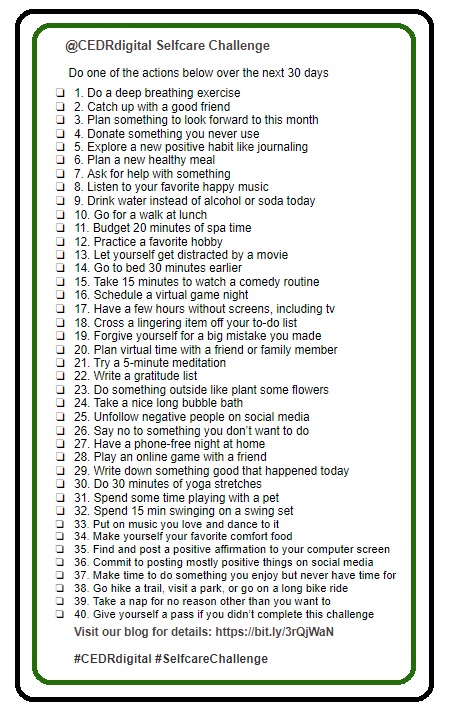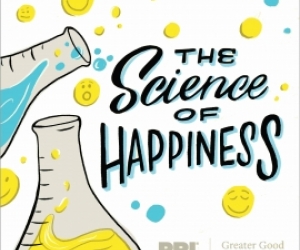
Almost a year into this pandemic, many are finding our mental resilience challenged. Dr. Simon-Thomas, Director for the Greater Good Science Center at the University of California at Berkeley has found that the ability to be resilient depends on how we manage our setbacks and difficult periods. The good thing is that resilience can be developed though active practices that are scientifically proven. These practices such as self-care and meaningful connection to others, help us move forward in a positive ways even during a crisis.
One practice that has helped CEDR as an organization, is working on that meaningful connection with our volunteers. Team Leaders often check-in with our volunteers during an activation, and even for some time afterwards. Team Leaders do this to make sure volunteers are managing the stress and emotions that emerge from being witnesses to a disaster. Our Team Leaders know the personal impact disasters have on our lives and the importance that self-care provides to help us manage our physical and mental stress.
Developing a healthy self-care practice to increase our resilience and improve our overall mental health is not easy even during normal times. Scientists have shown us that it takes 21 days to develop a new habit, let alone a whole practice taking care of ourselves on a daily basis. However, the research of Dr. Barbara Fredrickson, has shown that with consistent practice we can thrive even during the challenging times.
Towards the goal of developing a consistent practice of self-care and positivity, we at CEDR have decided to launch a challenge over the next 30 days to help our volunteers and followers begin, develop and maintain a self-care practice that creates a mental resilience that will enable us to deal with any challenges that are ahead. We hope you will join us in this challenge and share with us feedback of your journey along the way. Please feel free to leave comments or suggestions about your self-care experiences using the actions on our list or from your own practice. For those who are visually challenged they can access the text of the image at: https://docs.google.com/document/d/1CDNAvQS8amMD4qw7dI1mV5aW6jqAdxtubIWwbv2OFw8/edit?usp=sharing
If you’re new at these types of challenges, participation is easy. Simply choose daily one of the 40 activities listed and make a note somewhere about your experience: either in a journal, or by checking off the box on a printout of the list, in order to develop a habit of accountability. Please note that even though it is a 30 day challenge we listed 40 activities in the event you might want to swap out an activity you don’t like. We encourage you to give us feedback on our social media accounts to let us know how things are going. Every Saturday night we will be available to chat on twitter and get your comments or questions on your experiences. These check-ins are what we do every week when we have activations to share life hacks or challenges with our self-care practices.
For a bonus as well as a boost of inspiration, we encourage you to listen to The Science of Happiness Podcast.

